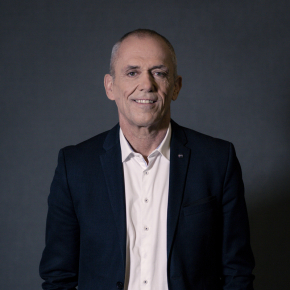
Antoine Petit comments on the Gillet report
With 14 proposals based on trust and responsibility concerning issues such as the role of different actors, modernisation, simplification, or time for research, the so-called “Gillet Report” envisions “the changes needed to bring about a renewal of the research and innovation ecosystem”. It was submitted on 15 June 2023 to Sylvie Retailleau, the French Minister for Higher Education and Research (MESR) by the mission coordinated by the geophysicist Philippe Gillet to investigate the matter. The CNRS Chairman and CEO Antoine Petit reviews some of the key points from the Report.
One of the proposals of the Gillet Report is to “set up the conditions and implement the changes needed” for national research organisations (ONRs) to “fulfill the role of programme agencies”. What does that entail for the CNRS?
Antoine Petit : The report perfectly reflects the discussions I have had with the Mission led by Philippe Gillet1
. In particular, it recommends that ONRs should take on the role of programme agencies, in addition to their current duties as research operators. The idea is to entrust each of the primary ONRs with managing research communities, and collectively defining a national scientific strategy around topics in connection with the national priorities of the France 2030 recovery programme. Each ONR will be responsible for the crucial task of coordinating the various actors involved, including communities, universities, organisations, partners, the government, and the French National Research Agency.
Concerning our institution, we may be in charge of leading an agency covering the broad – and hence highly multidisciplinary – field of “climate, biodiversity, and sustainable societies” (a name still under discussion). The allocation of agencies among ONRs should be known in the autumn, so that concrete efforts can begin as quickly as possible.
It is important to note that while the agency’s scope is transversal to that of the CNRS’s ten Institutes, it hardly encompasses all of our activities. It is therefore a complementary duty that we will be tasked with, and by no means a change in our current duties.
The report also points to the need for programme agencies to conduct national prospective analyses. Is this a new exercise for the CNRS?
A.P.: The document states that programme agencies should pursue “national monitoring and prospective activities, jointly established between the ONRs and higher education institutions”. The CNRS has already initiated and led such analyses for a number of years in earth science and astronomy, nuclear and particle physics, and ecology. Similar initiatives are being prepared in other sectors, especially in chemistry and physics.
Each prospective analysis is the result of rigorous and collective efforts, to which the various scientific communities devote the utmost care. The goal is to identify scientific issues and emerging topics, to determine the needs of scientists, and to establish short-, medium-, and long-term scientific priorities, as well as define the societal challenges they will address.
Agencies should feed into the country’s research strategy, and also support risk-taking, so that research contributes to the acquisition of decisive new knowledge, as well as its benefits. They will also be able to propose new national programmes.
Programme agencies will no doubt also play an advisory role for the government and decision-makers. Support for public decision-making has already been a pillar of our public activity in recent years. The CNRS’s Mission for Scientific Expertise (MPES) — which since early 2022 has offered collective, independent, diverse, and impartial scientific know-how — will serve as a lever in this endeavour.
What does the simplification exercise recommended by the report involve? How will it be put into practice?
A. P.: Simplification has been a central issue for a number of years now, with everyone obviously calling for it. The very organisation of French higher education and research, which is based on cooperation and shared management between various supervisory authorities within joint research units (UMR), provides genuine added value. Yet it is also true that it can complicate things on a daily basis. Scientists and support staff therefore have high and legitimate expectations, with a view to simplifying their lives and collectively being more efficient.
The report’s proposals are interesting, and aim to ease the administrative burden on laboratories. They stress the need to better share information in real time, as well as to establish a common knowledge base for steering, management, and assessment data and indicators. They build on the endeavours by various players in recent years. The CNRS has already made significant efforts towards simplifying administrative tasks in laboratories by introducing global spending authorisations enabling laboratories to commit credit upon the signing of a contract; gradual digitisation of recurring management processes and research assignments; electronic laboratory notebooks; management transfer; and access to tried and tested CNRS resources for all partners. It is a long-term effort that is often conducted behind the scenes, and is not always visible. The only goal is to make things easier for laboratories and free up time for research.
The report provides significant leeway for organisation; ONRs and universities can take a made-to-measure approach depending on the individual context of research units, which is great. Together we proposed a number of pilot sites to conduct the experiments over the next 18 months.
- 1The geophysicist Philippe Gillet directed the CNRS’s National Institute for Earth Sciences and Astronomy from 2001-2003, and later the ENS Lyon and the French National Research Agency (ANR), before serving as Principal Private Secretary to Valérie Pécresse, the then-Minister for Higher Education and Research (2007-2010). Since 2010, he has been a Professor at the Swiss Federal Institute of Technology in Lausanne, where he served as both Vice President and Acting President. Gillet is also the President of the Scientific Board of the Île-de-France Region, as well as the President of the Scientific Advisory Board of the INRAE. He was a member of the jury for Idex, and has served as Chief Scientific Officer at the company Sicpa since 2017.


